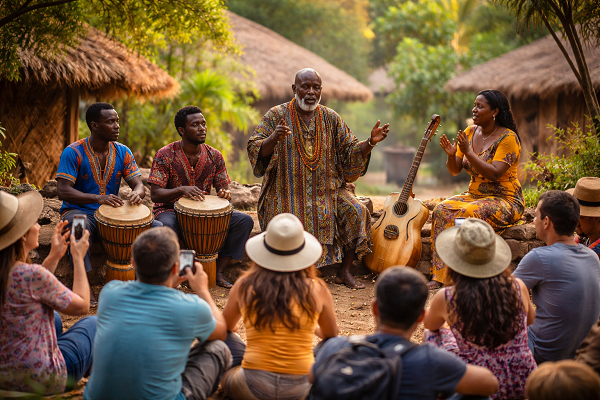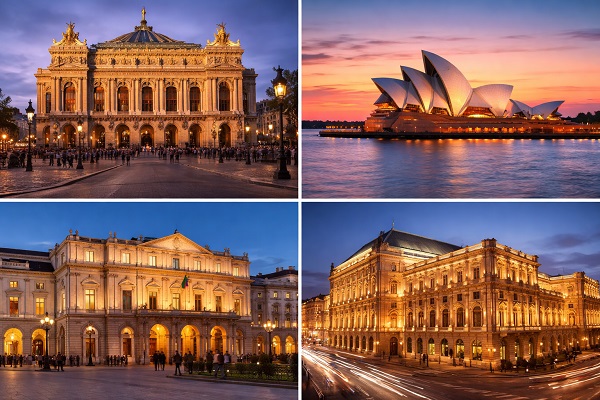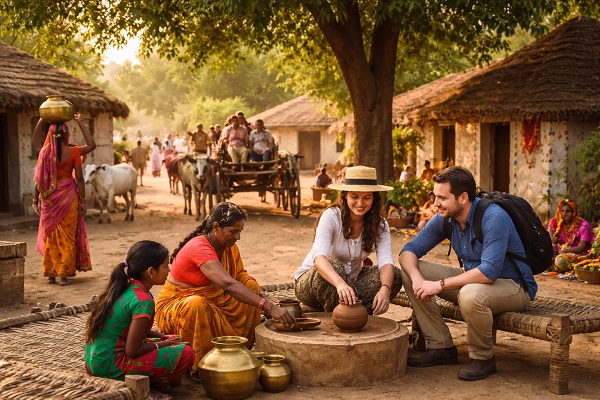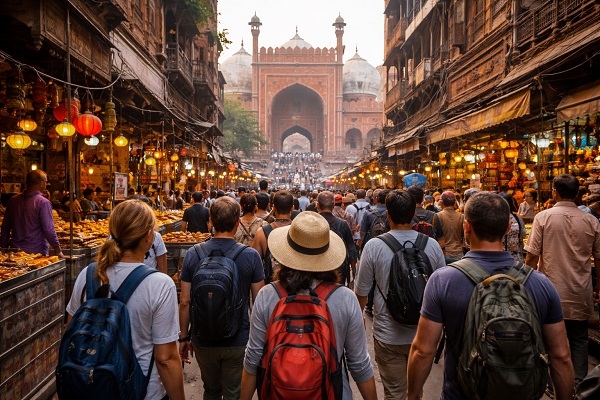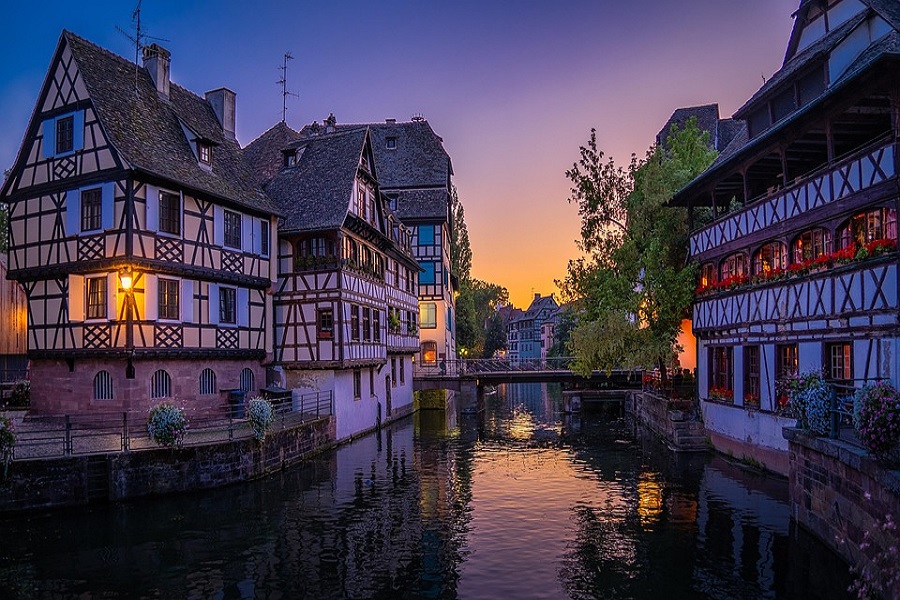Cultural Tourism: A Journey Through the Heart of Tradition and Innovation

Cultural tourism is an enriching form of travel that allows individuals to explore the heritage, art, and unique traditions of different communities worldwide. Unlike typical vacations centered around relaxation or sightseeing, cultural tourism seeks to engage travelers in experiences that celebrate the human spirit and its diverse expressions. From ancient festivals to modern art exhibitions, cultural tourism invites us to walk in the footsteps of history while embracing contemporary cultural evolution.
Understanding Cultural Tourism
Cultural tourism involves traveling to locations where cultural heritage is the main attraction. This can encompass a wide array of experiences, including visiting historical landmarks, participating in traditional festivals, exploring art galleries, attending music and dance performances, or even tasting the regional cuisine. The focus is on learning about the customs, history, and ways of life of a destination's people.
Top Cultural Destinations for Immersive Travel
Cairo, Egypt
Cairo is home to some of the most iconic cultural landmarks, including the Great Pyramids of Giza, the Sphinx, and the Egyptian Museum. Visitors can delve into the ancient civilization’s rich history, from the pharaohs to the modern-day Egyptian society. Exploring the bustling streets and markets of Cairo, with their vibrant atmosphere, provides a perfect blend of old and new.
Paris, France
Known as the cultural capital of the world, Paris is renowned for its contribution to art, literature, and fashion. The city offers countless cultural experiences—from admiring classical art in the Louvre to enjoying an evening of opera at the Palais Garnier. Parisian cafés, local markets, and neighborhoods like Montmartre also offer visitors a chance to experience French culture firsthand.
Petra, Jordan
As one of the Seven New Wonders of the World, Petra is a must-see for cultural tourists. This ancient city, carved into red sandstone cliffs, offers a glimpse into the engineering marvels of the Nabateans. The rich cultural heritage of Petra is evident in its temples, tombs, and intricate water management systems, showcasing the innovation and artistry of this ancient civilization.
Marrakech, Morocco
Marrakech is a blend of traditional Moroccan culture and modern influences, with its maze-like souks, intricate tile work, and vibrant markets. The city’s history, seen in its palaces, gardens, and mosques, adds depth to the cultural experience. Marrakech’s festivals, such as the Marrakech International Film Festival, further highlight the city’s cultural significance.
Mexico City, Mexico
Mexico City is a hub of rich history and culture, with influences from ancient civilizations like the Aztecs to the colonial era. The National Museum of Anthropology, the ancient ruins of Teotihuacan, and the historic center of Zócalo all tell the story of Mexico's past. Furthermore, the city is a haven for culinary enthusiasts with its authentic street food and traditional dishes.
The Benefits of Cultural Tourism
Preserving Heritage: By traveling to culturally significant locations, tourists help fund the preservation of heritage sites and traditions. This, in turn, helps safeguard cultural landmarks for future generations.
Supporting Local Communities: Cultural tourism boosts local economies by encouraging the growth of small businesses, artisan markets, and traditional industries such as weaving, pottery, and food production.
Enhancing Global Understanding: Immersing oneself in another culture fosters empathy and promotes mutual understanding between nations. It breaks down stereotypes and helps build respect for the diversity of cultures worldwide.
Personal Growth: Travelers gain deeper insights into different lifestyles, expanding their perspectives. This can lead to a greater appreciation for different cultures, histories, and ways of life.
How to Engage in Cultural Tourism
Participate in Local Events: Whether it's attending a local festival, learning to cook traditional dishes, or taking part in a community dance, engaging with locals is the best way to truly experience a culture.
Support Local Artisans: Purchasing hand-crafted goods directly from artisans not only supports the local economy but also gives you a tangible piece of the culture you’re exploring.
Be Mindful of Cultural Sensitivities: Respect for local customs, religion, and traditions is crucial. Always be aware of local norms and dress codes, and approach sensitive topics with understanding and respect.
Learn the History: Take the time to research the historical context of the places you visit. A deeper knowledge of the past enriches your experience and gives meaning to the places you explore.
Conclusion: The Power of Cultural Tourism
Cultural tourism offers an exceptional opportunity to connect with the world's rich and diverse heritage. Whether you're wandering through ancient ruins, savoring local cuisine, or enjoying a vibrant performance, each experience is a chance to learn, understand, and appreciate the world around you. As cultural tourism continues to grow, it remains a powerful tool for fostering global connections and preserving our shared history.

















